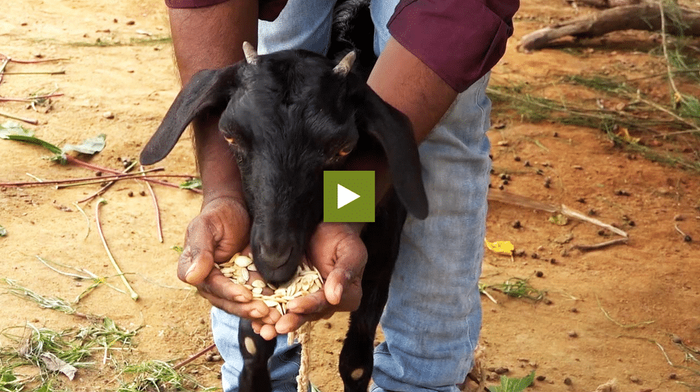Goats and sheep kept for meat, milk, skin and wool. Worm infestation is a major problem and affects both growth and skin quality. In extreme cases without proper care animals can also die. Worm infected goats don’t eat and continued diarrhoea may kill them. Infected goats don’t mingle with others, are inactive and they pass worms in stool in the process.
Symptoms and way of infection
Swollen stomach and diarrhoea with small whitish worms with foul smell. Losing weight, bloated stomach are signs of a worm infection. Parasitic worms spread through unhealthy conditions, contaminated water and infected grazing areas. Worms from infected animals move to healthy ones during grazing from the leaves and grass to healthy animals and also from sick to healthy animals when kept in the same shed.
Preparation of dewormers
Worm infestation can be prevented and cured by plants available naturally called dewormers. Mix neem, chinese chase tree and aloe vera leaves mixed equally and add small quantity of water and grind together to make mixture.
Prevention: Give dewormers once every three months to prevent worms Giving goats and sheep medicine before they get infected with worms. Medicine given on empty stomach as it works better.
Dosage
One tea spoon is enough for sheep and goats younger than three months. A half a cup for older goats once every three months. Use herbal extract within two days of preparation.
Storage
Keep extract in an airtight container. Checking feaces for worms from animals once they take dewormers and if any prepare extract again. The medicine has no side effects, is simple to give and cost effective to prepare. Never deworm pregnant animals as it may cause abortion. Feeding the animals after deworming so as to be strong and healthy.



















